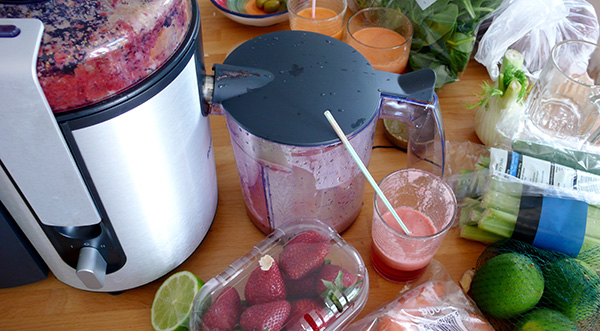
With the growing interest in health and wellness around the United States, some people have taken drastic and controversial measures to combat weight gain and maintain their health. In recent years, juice cleanses have become one of the most popular trends among many while others find much to be desired. For an average NYU student, however, these clean-ses might not be worth the hype.
A standard cleanse involves consuming a combination of green vegetable-based juices and additional veggie and fruit juice blends over the course of one to 10 days. One common cleanse is the Master Cleanse, which includes a mix of water, lemon juice, cayenne pepper and maple syrup. Beyoncé Knowles allegedly used this diet to lose weight, as the calorie intake is extremely low and solid foods are not consumed.
According to NYU Department of Nutrition, Food Studies and Public Health professor Marion Nestle, cleanses done for more than one day pose several health concerns.
“The intestinal tract cleanses itself,” Nestle said. “[Juice cleanses are] a low-calorie, highly restricted, nutritionally incomplete diet.”
Kathleen Zelman, the director of nutrition for WebMD, wrote on the website that low-calorie diets are ineffective for long-term weight loss, and often leave users with additional weight gain and food cravings once they return to a normal eating regimen. She also recommended consulting a doctor before beginning a juice cleanse, and to limit the change in diet for a few days.
Although most famous cleanses offer delivery services or can be found in grocery and specialty health stores, they are fairly expensive and cost upwards of $60 per day.
“I don’t have much motivation to spend money on an expensive trend,” CAS freshman Kim Nguyen said. “I’m already living a lifestyle that makes me feel healthy, [and] I don’t feel that I’m knowledgeable enough about the pros and cons of juice cleanses to try one.”
In a college setting, juice cleanses do not provide the necessary amount of energy for a student’s body and schedule. Most cleanses advertise their recipes as a way to detox the body and reset the natural balance in the digestive system. But this can easily be done through a daily intake of vitamin-rich foods.
For the majority of the NYU community, cleanses are neither recommended nor necessary for sustaining a healthy lifestyle. If done incorrectly they can negatively affect health. For a cheaper and easier alternative to cleansing, try cutting down caffeine and other stimulants which can actually cause stress and lack of sleep if consumed in large amounts. Also, be sure to eat a balanced diet full of protein, fiber, vitamins, carbohydrates and healthy fats.
A version of this article appeared in the Tuesday, Nov. 5 print edition. Gianna Collier-Pitts is a staff writer. Email her at [email protected].

























































































































































